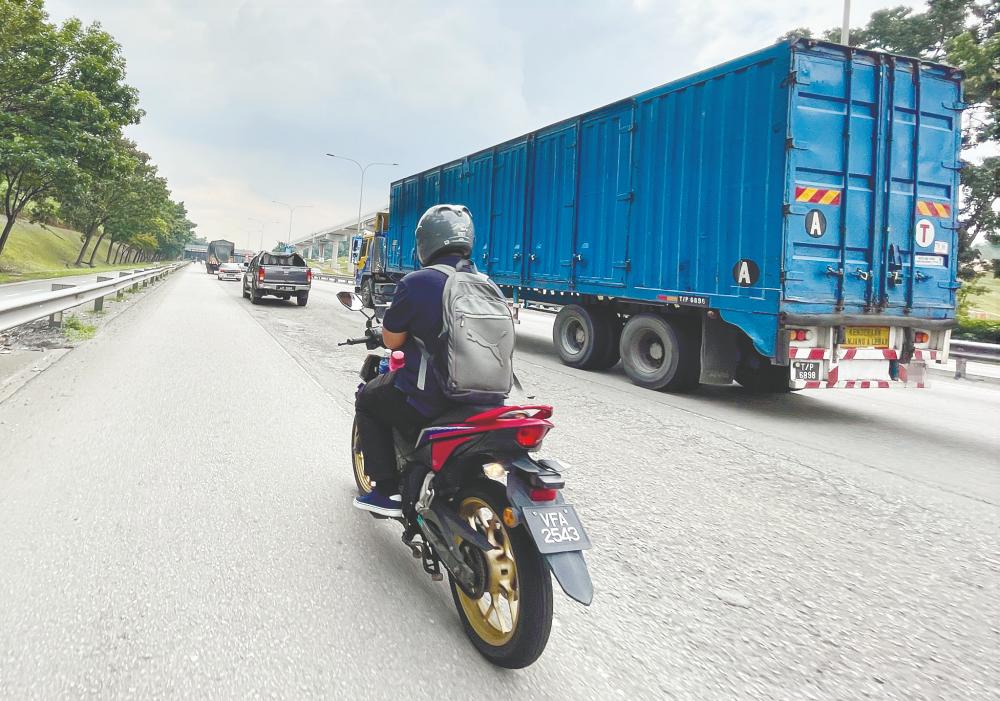KUALA LUMPUR: Real-time monitoring systems in heavy vehicles should be made mandatory as a safety measure to help prevent road crashes involving lorries, container lorries, and express buses that have been on the rise of late.
On Nov 15, a man was killed and two others injured in a three-vehicle crash involving a container lorry in Kluang, Johor.
This was the second fatal crash in the space of three days after the first in Bukit Mertajam that also involved a trailer.
The crashes have raised concerns about road safety and the measures needed to prevent such catastrophic incidents.
Malaysian Institute of Road Safety Research (Miros) chairman Prof Dr Wong Shaw Voon told theSun that highways and busy roads have become the hotspots for collisions involving heavy vehicles.
“Companies should prioritise safety and ensure their employees have a real-time monitoring app on their mobile devices,”
he said.
Highlighting the benefits of such monitoring technology, Wong emphasised that its adoption should be mandatory.
“People should be compelled to instal such a system that offers so many advantages.”
He said road crashes do not just cause minor injuries but can also lead to death, property damage and prolonged traffic disruptions.
Recent occurrences have raised significant alarm among both road users and logistics firms, leading to renewed conversations regarding the enhancement of safety measures for heavy vehicles.
Universiti Teknologi Malaysia automotive and transportation engineering expert
Dr Mohd Azman Abas recently said real-time monitoring technology would be a potential solution to vehicle crashes.
“The system uses GPS technology, sensors and advanced software to track vehicle performance, which allows transport managers to obtain instant feedback on the performance of their drivers, such as vehicle speed, braking patterns and overall driving practices.
“Human factors, including drivers’ attitudes, behaviours, and physical conditions, are vital components in maintaining road safety.
“Therefore, it is essential to adopt technology capable of tracking driving behaviour in real-time,” he said.
Wong also suggested the use of artificial intelligence and autonomous emergency braking as another safety measure for heavy vehicle drivers.
Heavy vehicles with a laden weight exceeding 7,500kg are prohibited from entering city centre roads during peak hours, from 6.30am to 9.30am and 4.30pm to 7.30pm, according to the Road Transport Department.
However, violations have been observed, with heavy vehicles on the road as early as 6.00am, contributing to traffic congestion and road crashes.
Wong stressed that new vehicles should come pre-installed with monitoring systems.
“These systems don’t just benefit heavy vehicles but they also improve safety for all road users,” he said.
Another concern is the lack of adequate parking spaces for heavy vehicles in rest and service areas, leaving drivers without proper locations to rest and plan their journeys.
Improving parking infrastructure is critical for reducing driver fatigue and enhancing road safety.
Wong concluded that companies must take the initiative to adopt these technologies without waiting for regulations to compel them.
“There are more than half a million accidents annually, some of which go unreported. Freight companies must prioritise safety and make real-time monitoring a standard practice.”
By leveraging technology, enforcing existing regulations, and improving infrastructure, Malaysia can significantly reduce heavy vehicle crashes and create safer roads for all users.









